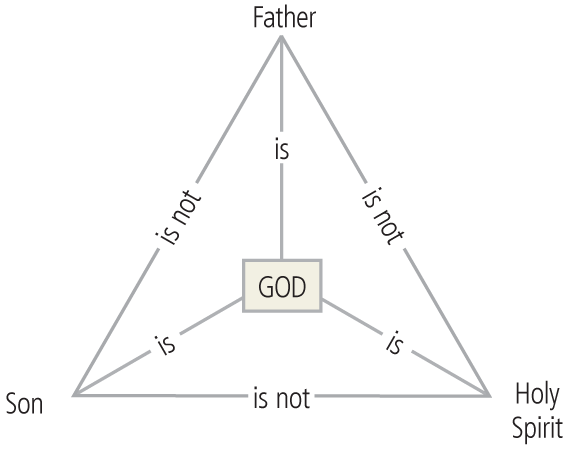
The doctrine of trinity teaches that the one true God of the Old Testament has in the New Testament further revealed himself in three ways of being (Persons) in his work of redemption: as the Father who is the source of all things, as the divine Word who came in flesh to reveal the Father and redeem the fallen race, and as the Holy Spirit who gives new life to the church and unites all things in heaven and earth under God’s rule.
The premises of the doctrine of the Trinity are: (1) The unity of God taught in both the Old Testament and the New Testament and, (2) The full deity of the Son and the Holy Spirit revealed in God’s final revelation, the New Testament.
A proper biblical view of the Trinity balances the concepts of unity and distinctiveness. Two errors should be avoided: (1) Tritheism which emphasizes distinctiveness of the Godhead to the point that the Trinity is seen as three separate Gods, or a Christian polytheism, (2) Unitarianism which disregards distinctiveness within the Godhead as it gives special focus to God the Father so that Christ and the Holy Spirit are relegated to less than divine categories. Both errors compromise the effectiveness and contribution of the activity of God in redemptive history. Continue reading “Doctrine of the Trinity: A Primer”

